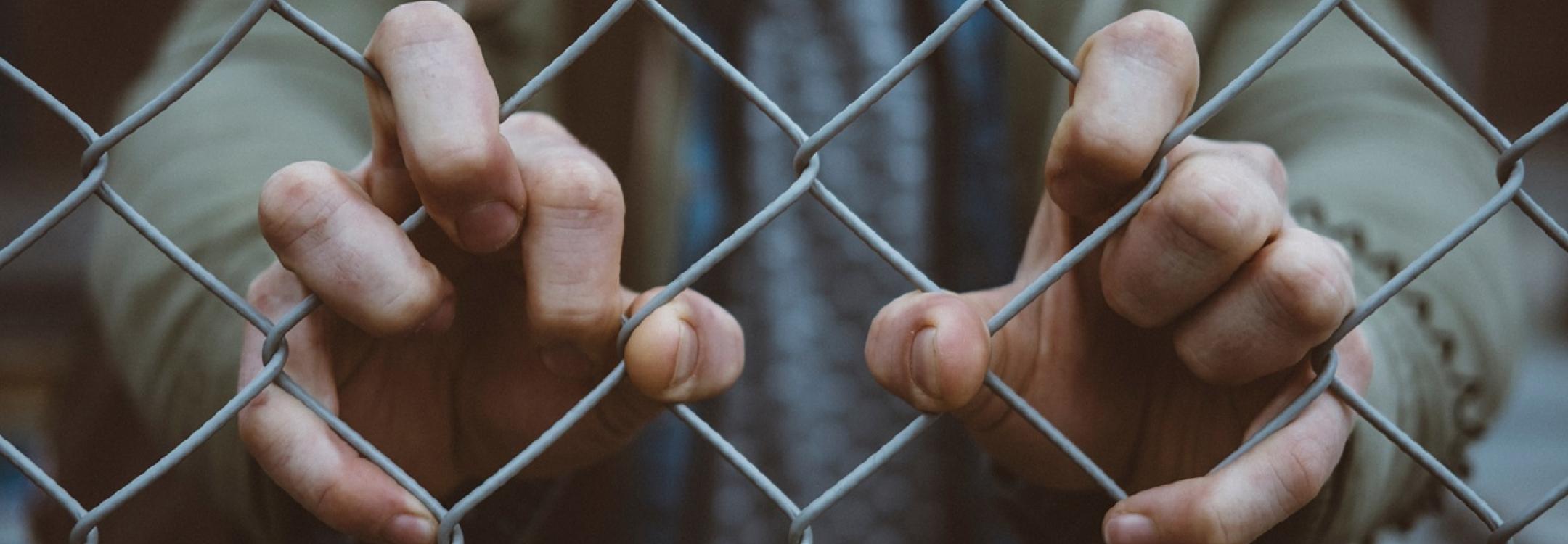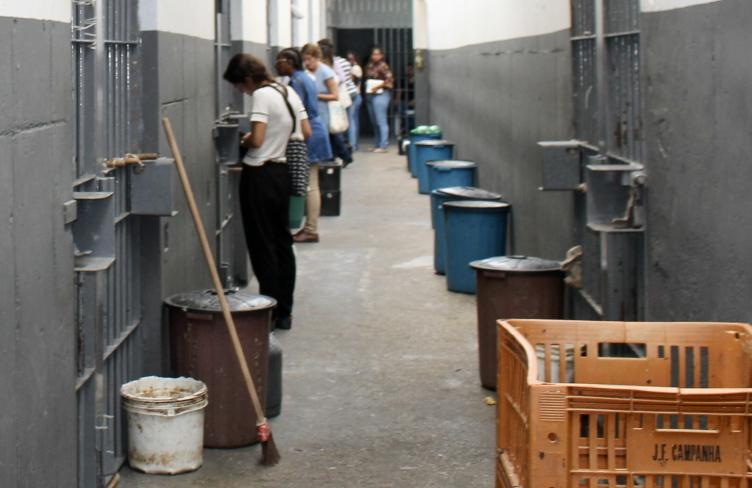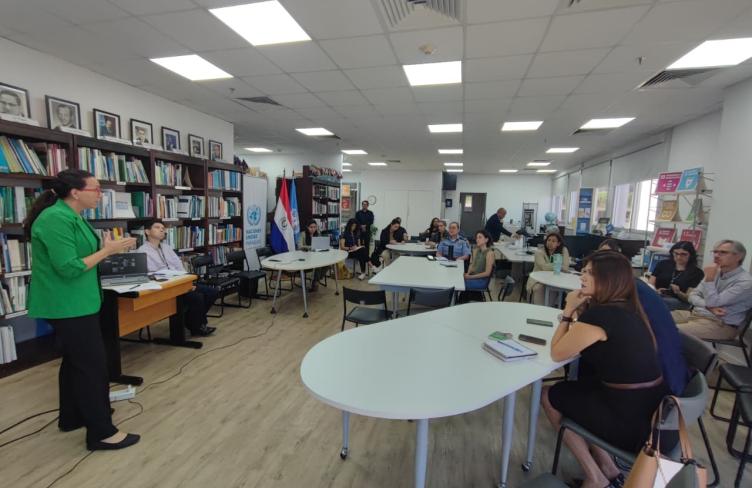
The COVID-19 pandemic has generated an unprecedented multidimensional crisis in Latin America and the Caribbean[1]. The first stage of response to the pandemic has focused on containing the health crisis. However, the socio-economic consequences of these responses have also highlighted an urgent need to focus on the impact on justice and security institutions in the region.
The recent UNDP Working Paper - “Penitentiary Systems and the COVID-19 Emergency” - identified three major challenges facing penitentiary systems in the region prior to the pandemic:
- High incarceration rate, with an estimated 1.5 million people deprived of liberty.[1]
- Severe, overcrowding in prisons - averaging 64% in the region - making it one of the highest in the world.
- Procedural delays, with a worrying 36.3% of prison population held in detention on remand.[2]
This fragile scenario has been compounded by new challenges arising from the pandemic. For example, the lack of access to drinking water and the impossibility of physical distancing in overcrowded detention centers have had a direct impact on the health and safety of those deprived of their liberty. In addition, measures have had to be taken in prison systems - such as restricting visits or reviewing precautionary procedures - while trying not to affect the human rights of the persons deprived of their liberty or their visiting relatives.
In this context, the United Nations Development Programme (UNDP) and the Association for the Prevention of Torture (APT) have established a strategic alliance to create the COVID-19 Digital Mapping: Justice and Deprivation of Liberty.
This online tool documents the responses adopted by 31 countries in Latin America and the Caribbean[3] to address the challenges generated by COVID-19 in relation to detention centers. Our goal is to provide up-to-date data and information that can guide evidence-based policies to respond to the crisis, transforming justice and security institutions with a human rights-based approach.
There are already more than a thousand documents available in our database.[4] This allows us to make some initial reflections on supporting prison management in their efforts to ensure a human rights-based approach.
Effective communication and transparency for evidence-based decision making
It is essential that countries produce reliable information, guarantee its dissemination and provide access to it in order to have adequate transparency and accountability processes.[5]
For example, having information on the number of COVID-19 cases in places of detention or the courts assists with the development of monitoring and early warning mechanisms to locate where measures are needed to reduce the risk of transmission. This also helps avoid obstructions or delays in access to justice due to the crisis.
As our COVID-19 Digital Mapping tool shows, prison authorities in Costa Rica and Panama publish periodic newsletters on their websites to report on the number of COVID-19 cases in the prisons. In addition, the Judicial Branch of Puerto Rico frequently reports on the measures taken when an official tested positive for COVID-19.[6]
Differentiated approach and comprehensive emergency plan to respond to COVID-19
We know that the risks associated with COVID-19 are greater for different sections of the community, especially for the elderly to a greater extent and those living with chronic and auto-immune diseases, among others. Therefore, government responses in the justice and security sectors must be designed and implemented to give special protection to those most vulnerable to the virus.
For example, in Argentina, protocols were developed to prevent COVID-19 infections among older people.
And in Chile, a pardon law was enacted that benefited more than 1,700 particularly vulnerable prisoners.[7]
Cooperation and the exchanging of lessons learned for an “Improved return to normality”
Since the beginning of the pandemic, governments, international organizations, academia and other stakeholders have been recording their experiences and lessons learned for the management of prison and detention systems. This presents a critical moment where we can strengthen communication channels among the governments of the region to build justice systems that provide more effective and inclusive responses, as well as develop and rethink innovative public policies that respond to the needs of people deprived of their liberty.
The Digital Mapping tool is our contribution to this important process. We want to ensure that all stakeholders have an overview of the different initiatives and measures that governments in the region have taken and continue to take. Our goal is to encourage dialogue, information sharing, and elements for action.
The focus on the Sustainable Development Goals (SDGs) must be strengthened
The COVID-19 crisis provides an opportunity to identify and prioritize our efforts to foster peaceful, just and inclusive societies. Achieving peace, access to justice and the transformation of inclusive institutions requires us to consolidate the implementation of the SDGs for the sustainability of the region.
COVID-19 Digital Mapping: Justice and Deprivation of Liberty, identifies links between the responses implemented by the governments of the region and the implementation of the 2030 Agenda. This is done with special emphasis on SDG 3 on health and well-being; SDG 5 on gender equality; SDG 16 on peace, justice and strong institutions; and SDG 17 on alliances to achieve the objectives.
This joint initiative will be a bridge for reflection and learning about the current management of the penitentiary sector in the region and establishes guidelines so that human rights are protected even in times of crisis and, in line with the 2030 Agenda, we “leave no one behind ".
Jairo Acuña - Alfaro
Governance Team Leader, UNDP Latin America and the Caribbean
Audrey Olivier Muralt
Deputy Secretary General, Association for the Prevention of Torture
aolivier-muralt@apt.ch
[1] Universidad Johns Hopkins, local authorities. October 21, 2020.
[2] With a rate of 262 inmates per 100,000 inhabitants, well above the world average of 145 per 100,000 inhabitants, according to the "World Prison Population List" Report, https://www.prisonstudies.org/sites/default/files/resources/downloads/wppl_12.pdf.
[3] Data for 2017, including the United States and Canada, available at: https://www.prisonstudies.org/sites/default/files/resources/downloads/wptril_3rd_edition.pdf
[4] IDB, Prisons in Latin America and the Caribbean in times of the COVID-19 pandemic, available here: https://publications.iadb.org/publications/spanish/document/Las-carceles-de-America-Latina-y-el-Caribe-ante-la-crisis-sanitaria-del-COVID-19.pdf
[5] Antigua and Barbuda, Argentina, Aruba, Bahamas, Barbados, Belize, Bolivia, Brazil, Chile, Colombia, Costa Rica, Cuba, Dominica, Ecuador, El Salvador, Grenada, Guatemala, Guyana, Honduras, Mexico, Nicaragua, Panama, Paraguay, Peru, Puerto Rico, Dominican Republic, Saint Kitts and Nevis, Saint Lucia, Trinidad and Tobago, Uruguay and Venezuela.
[6] As of November 2020, the platform has 1,181 data, including protocols, government orders, press releases, reports and guidelines, among others.
[7] Inter-American Commission on Human Rights, IACHR. Special Study on the Right to Access to Information, Office of the Special Rapporteur for Freedom of Expression. Inter-American Commission on Human Rights. Washington, D.C. 2007.
[8] The criteria includes previous pathologies, advanced age and mothers with young children.


